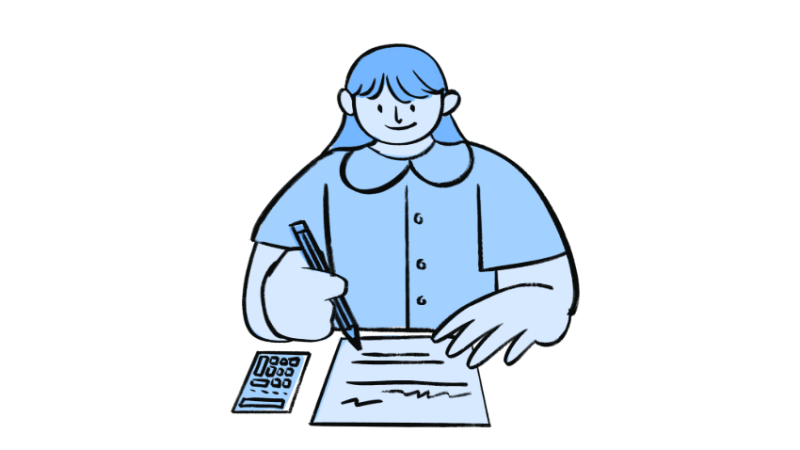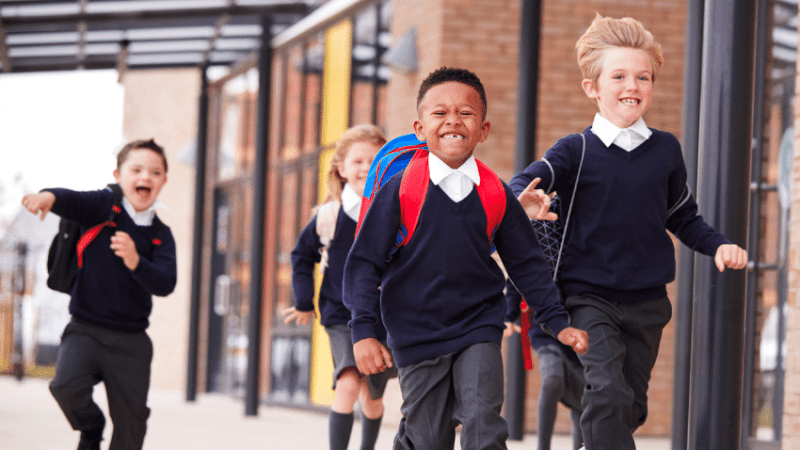World Cup 2026 – Best football lesson plans, resources and ideas for KS1-KS4

If your pupils are in a footie frenzy, these lesson plans, activities and ideas offer some excellent educational links…

- by Teachwire
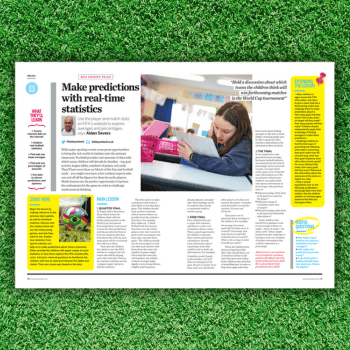
Kick off the classroom excitement with these World Cup 2026 football resources. They’re perfect for igniting a passion for learning and the beautiful game…
When is the the next World Cup?
The World Cup 2026 will take place between 11th June and 19th July 2026.
Where is the 2026 World Cup?
The World Cup 2026 will be jointly hosted by 16 cities in three North American countries: Canada, Mexico and the US. This is the first time the tournament has been hosted by three nations.
KS2 football resources
Make World Cup predictions using real-time stats
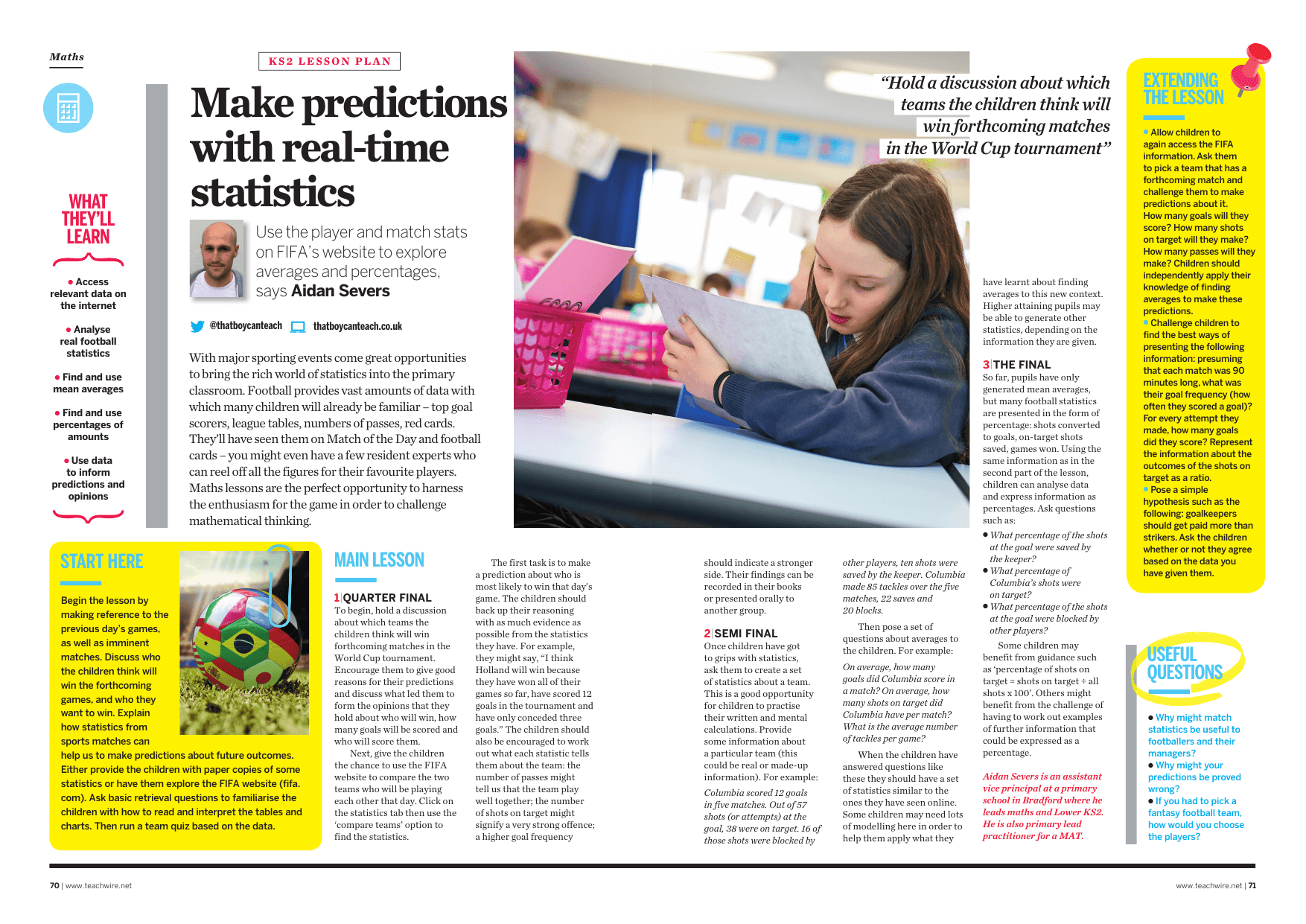
With major sporting events come great opportunities to bring the rich world of statistics into the primary classroom. Football provides vast amounts of data with which many children will already be familiar. This includes top goal scorers, league tables, numbers of passes and red cards.
Maths lessons are the perfect opportunity to harness the enthusiasm for the game in order to challenge mathematical thinking. Download Aidan Severs’ KS2 football statistic maths lesson plan.
KS2 World Cup oracy activities and worksheets
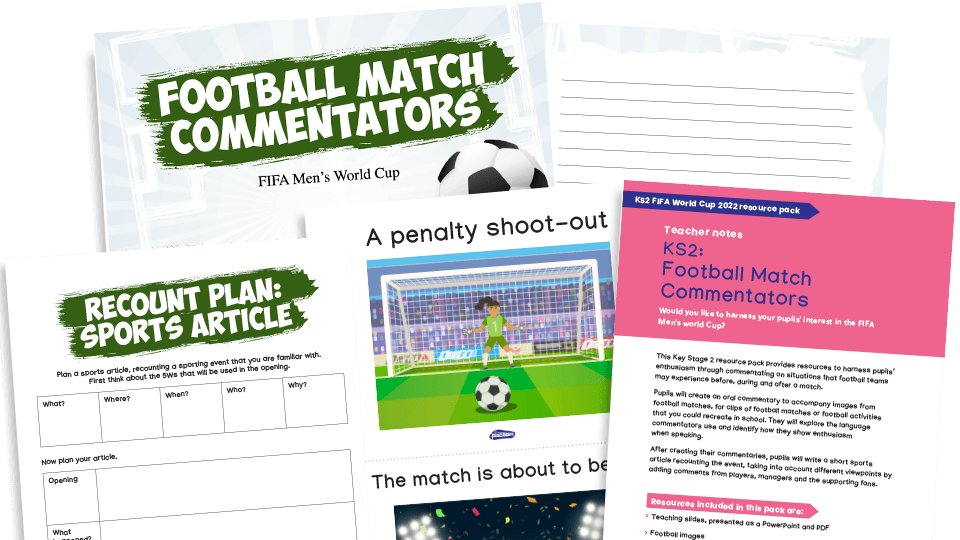
This Key Stage 2 World Cup resource pack from Plazoom asks pupils to create an oral commentary to accompany images from football matches, clips of football matches or school football activities.
They’ll explore the language commentators use. They’ll also identify how they show enthusiasm when speaking. Finally, they’ll write a short sports article that takes into account different viewpoints.
KS2 PE & English lesson plan
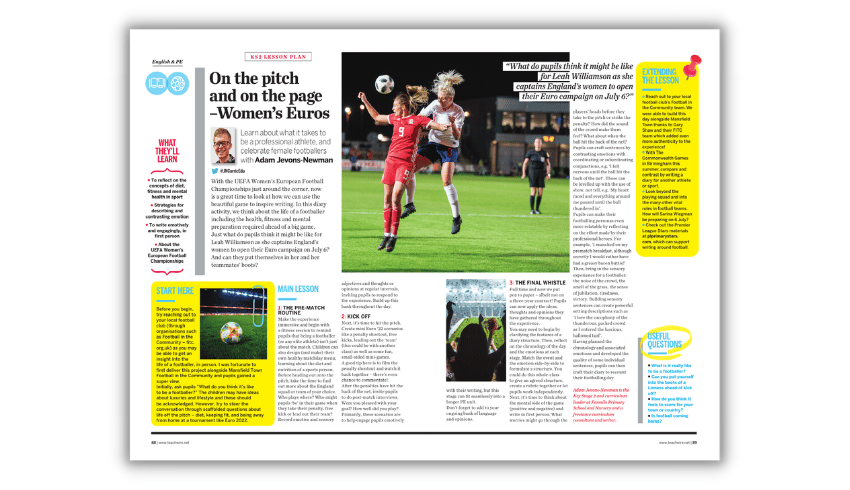
Use the beautiful game to get children’s creative juices flowing. This diary writing activity for KS2 involves writing from the perspective of a footballer about to play in a big match.
Motivate footy fanatics with pop art
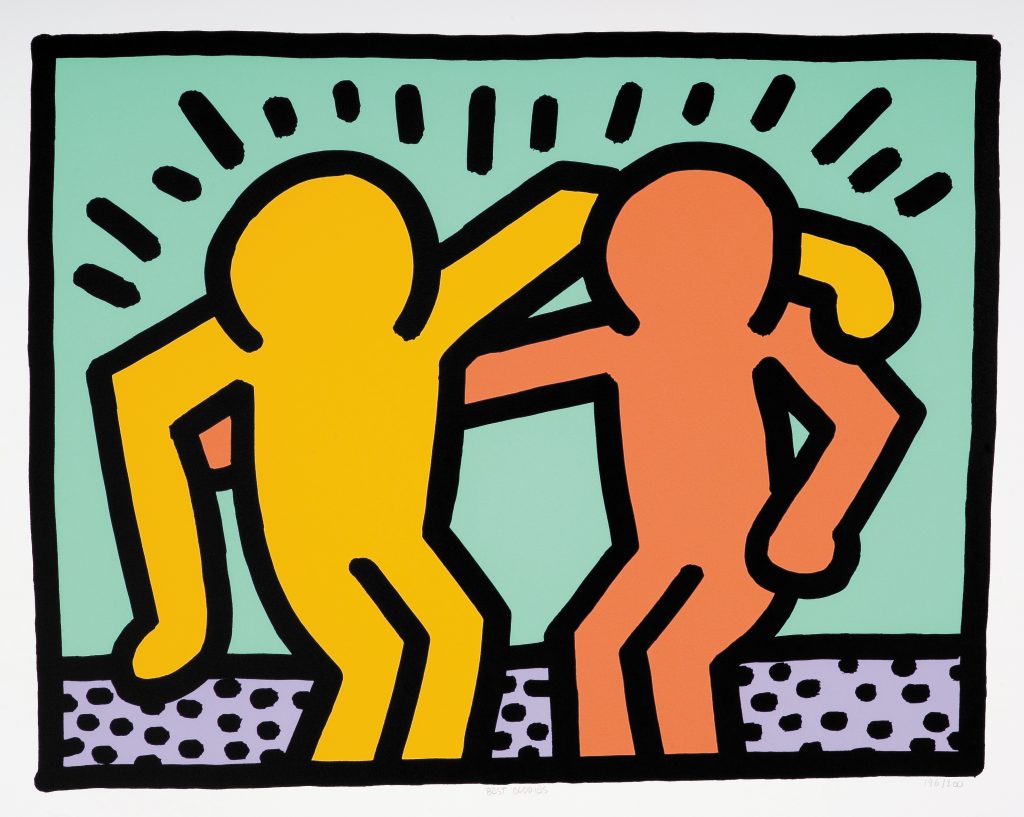
It’s tempting to think that using the World Cup to engage children’s learning has to involve copious amounts of PE. However, making links between football and other subject areas can be a powerful motivator for children whose main interest is sports.
This KS2 football art lesson plan shows how the movements of favourite footballers, combined with pop art, can inspire an eye-catching art project.
KS2 book topic – Kick by Mitch Johnson
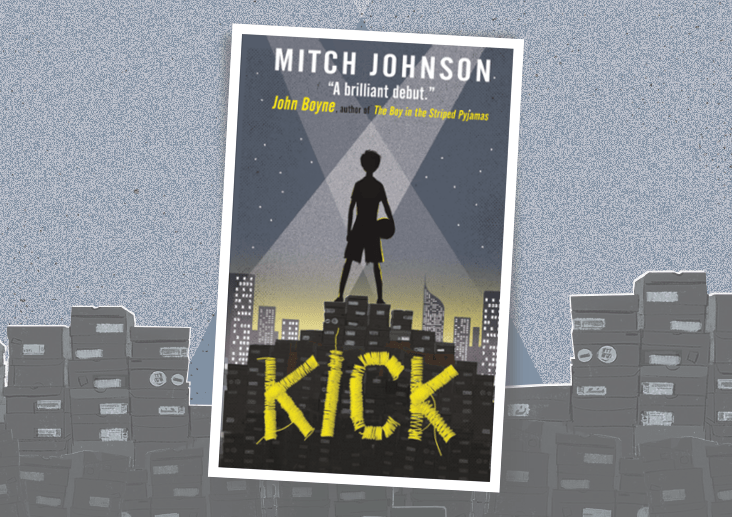
Kick by Mitch Johnson focuses on young boy Budi who lives in Jakarta, Indonesia. Instead of going to school he has to work at the local factory making football boots.
This special book covers poverty, child labour and crime, while maintaining an undertone of humour, hope and bravery.
Read the book in class and use these cross-curriculular UKS2 activity ideas to extend children’s understanding of the novel.
Football School writing resources

These KS2 resources were created for a previous World Cup but can easily be adapted.
The authors of the Football School series have set pupils an exciting challenge to write a lesson for their favourite subject, but with a World Cup twist.
Head to the National Literacy Trust website to get the resource, handouts, a poster and printable certificates.
You can also download a Football School activity kit so children can design their own team kit, mascot, crest, stadium and more.
KS1 football resources
Describe settings with Frank Lampard

Written by Frank Lampard, the Frankie’s Magic Football series is the perfect combination of magic and football to inspire creative writing. With each adventure taking place in a different location (from the prehistoric land of dinosaurs to the jungles of Brazil), the books prompt children to consider the idea of setting in story writing.
This KS1 football literacy lesson plan encourages children to think about the techniques involved in good descriptive writing and how powerful language, adjectives and sensory description can create different effects.
Free KS1 football poetry resource pack
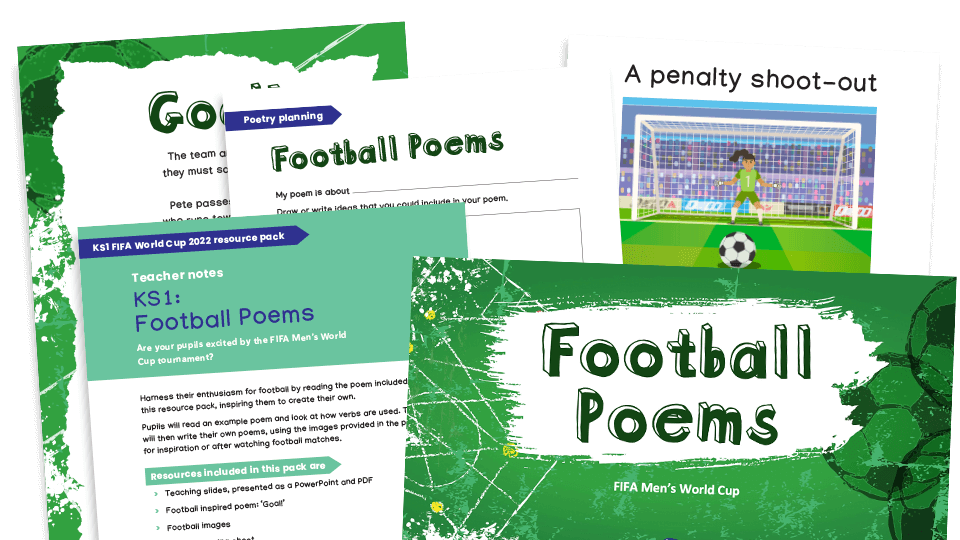
Harness pupils’ enthusiasm for football by reading the football poem included in this free Plazoom KS1 World Cup resource pack. They’ll look at how verbs are used, before writing their own poems.
The download contains teaching notes and slides, a poem, football images, a poetry planning sheet and themed writing paper.
Footy Phonics
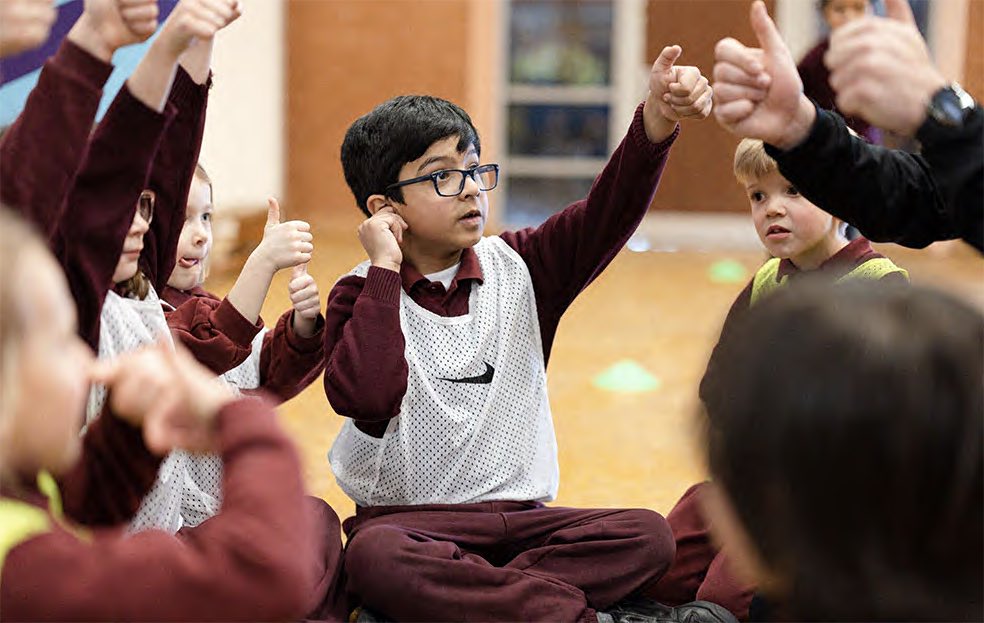
Footy Phonics is an active literacy intervention that uses engaging, football-themed activities to support children in developing the important skill of understanding phonics. The programme has been developed by the National Literacy Trust and is part of Premier League Primary Stars.
Secondary football resources
Develop decision-making in games
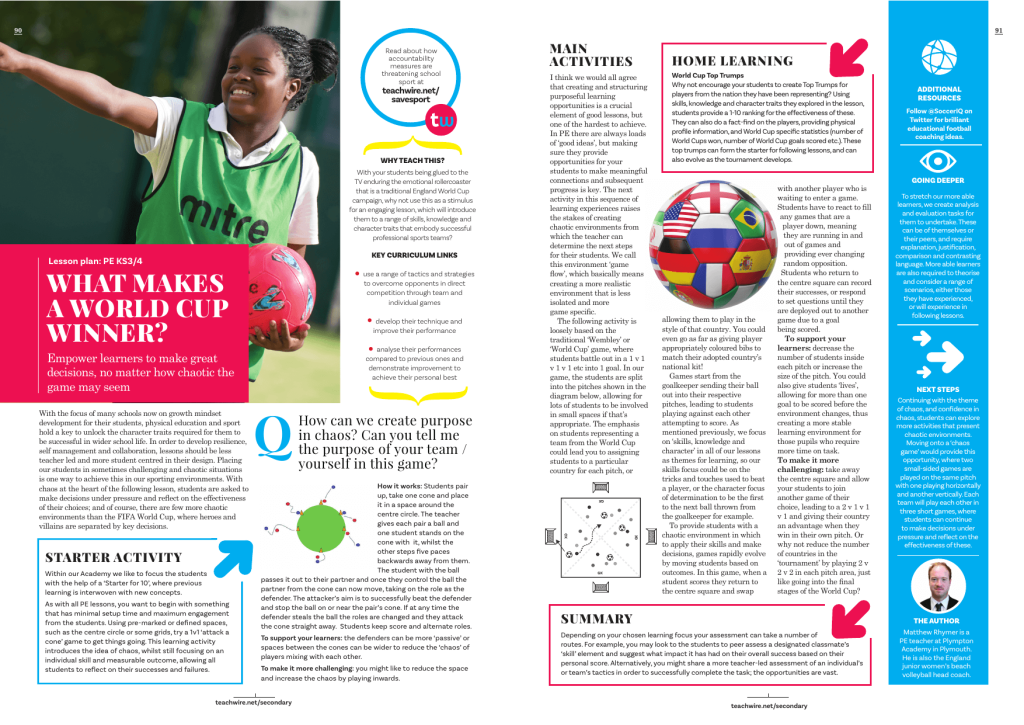
This KS3/4 PE lesson plan is based around improving students’ decision-making skills no matter how chaotic a game gets.
It helps boost skills, confidence and character, while thinking about game-winning tactics as well as technique.
The physics of football
In 1997, Brazilian football player Roberto Carlos’ free kick hooked dramatically to the left and landed in goal. How did he do it?
Watch the video then answer quiz questions and learn more at TEDEd.
KS3 maths worksheet – percentage changes

This KS3 maths football worksheet asks students to use calculate percentage changes in footballers’ salaries over time.
Using football to improve behaviour
How one school promoted a group of young lads into the Premier League of behaviour standards…
In our school, like many others, there’s a small group of boys in lower-KS1 who have learning and behavioural difficulties stemming from medical and social issues.
Having observed their behavioural patterns within the classroom environment and when playing football in the playground, I realised that the school would benefit from tapping into a resource that could encompass both physical activity and PSHE. Which is when I approached Premier League Primary Stars.
The programme focuses on four values – Be Ambitious, Be Inspiring, Be Connected and Be Fair. I used the coloured certificates to indicate a task for each of the boys over the course of a week, based on one of these four elements.
For example, a yellow certificate meant one pupil had to aspire to ‘Be Fair’ throughout the week towards his peers and teachers.
If he was successful, he received a yellow Premier League sticker on a chart that I had made for each of them.
Each week they would get a new colour and value, which they had to apply to all aspects of their work and play.
In the meantime, we would start each session by watching one of the resource videos that focus on themes such as communication, diversity, self-esteem and teamwork.
Celebrating achievements
Depending on the subject matter of the session, we would talk through how appropriate their behaviour needed to be throughout the day. This also reaffirmed what we expected of them in their allocated task for the week.
As these children have a need for visual, kinaesthetic learning, we reminded them of their responsibilities with large laminated certificates which had their names and tasks clearly displayed.
If throughout the week they collected five stickers on their chart, I would issue them with appropriate coloured certificates in front of the whole class, and by celebrating their achievement publicly, it gave them all a much-needed boost of confidence and helped build up their self-esteem.
After a few weeks, we mixed up the tasks to ensure we were focused on both the classroom and the playground. This sustained the message about how we engage with our peers and constantly reward good behaviour.
The Premier League code
We also started using the words ‘Premier League’ as a code they had to use if they saw one of the others misbehaving, in the classroom or in the playground.
Pretty soon, this small group of boys quickly became known as the ‘Premier League Club’ by their peers – which, of course, was another huge boost to their self-esteem and sense of belonging.
As team building has been a particular challenge with these boys, we would often take team building exercises from the resources out into the playground during our sessions.
These would start off well but they gradually and inevitably ended up in arguments.
Their lack of self-esteem, coupled with emotional and behavioural needs, meant that they often acted as individuals on the pitch – rarely passing the ball or acknowledging their team mates, rarely accepting defeat or taking a decision against them in a gracious manner.
This frustration would invariably be transferred back into the classroom, where disruption would ensue.
Huge victory
I have, however, seen signs of improvement in their teamwork over time. One small act – a pupil helping a fellow player off the ground by offering their hand – can represent a huge victory for these boys, and gives us a real example of teamwork to build upon.
With time, I hope we can transfer those positive signs back into the classroom environment.
The importance of teaching these boys in my care about basic values – respect, fair play, teamwork – should not be underestimated.
Every day out on the playground, we see how pupils mimic the behaviour of their football idols. If we can reinforce those messages about the true value of sportsmanship with real-life, relatable examples, then we can support these boys in all their interactions with peers and teachers.
The first step is to enact those values on the playground or pitch, then we can transfer it into the classroom.
Chris Baylis is a Specialist SEND Teaching Assistant at St Bernard’s RC Primary School, Manchester.
More ideas and resources
Disney Shooting Stars training
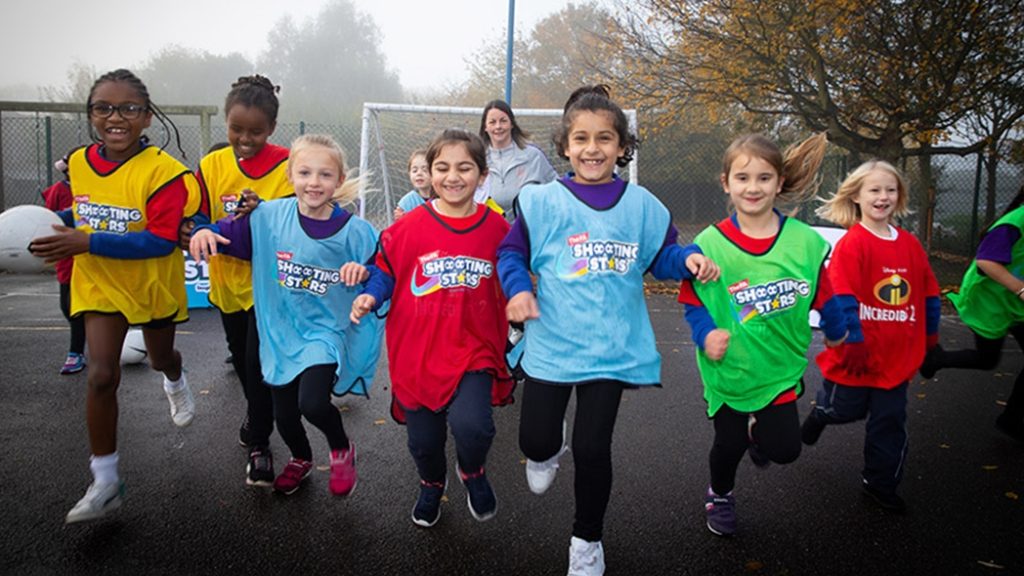
Help girls unlock their inner superheroes and get lost in the magic of Disney storytelling, all while getting physically active.
Designed to be delivered at breakfast club, lunchtime or after school, The Disney-inspired Shooting Stars training course from the FA is free for primary school staff. It comprises an online training course made of five separate modules:
- Introduction
- The fundamentals
- Put it into practice
- The Disney experience
- Bring it to the playground
Football reading lists
Check out the National Literacy Trust’s list of recommended football reads for children aged 0-12. We’ve also got our own list of football book recommendations here.
What England footballer Leah Williamson learnt at school
Arsenal and England defender Leah Williamson looks back on the efforts her school made to help her realise her footballing ambitions.





